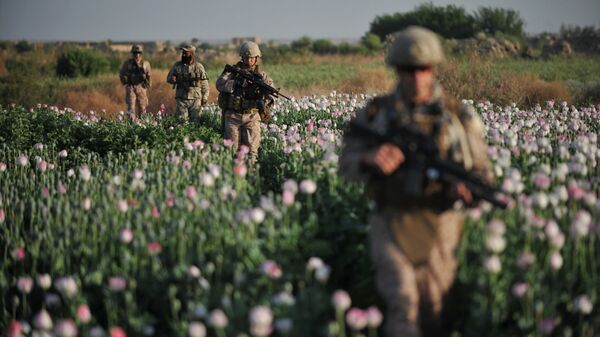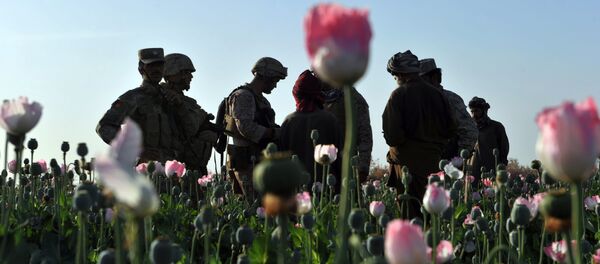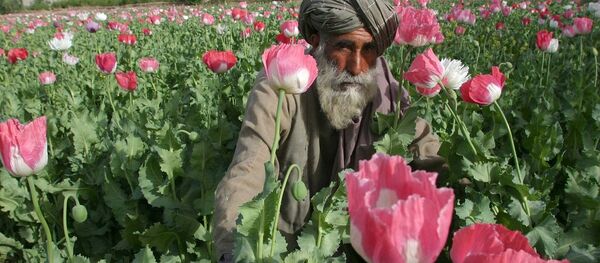Revealingly, counter-narcotics measures are nowhere to be found in the previous two versions of the “Enhancing Security and Stability in Afghanistan” report from the Defense Department, nor in the DoD’s semi-annual report to Congress on Afghanistan.
Army Brig. Gen. Charles Cleveland, spokesman for the NATO Resolute Support mission and US Forces-Afghanistan, said in a May briefing to the Pentagon that the Taliban would be too preoccupied with harvesting poppy to battle the 215th Division of the Afghan National Defense Security forces in the southwest area of Helmand, the largest opium-producing region in the country.
Cleveland reported that "The poppy crop is really the engine that provides all the money that fuels the Taliban," and that renegade forces would be inclined to maximize profit from "this very good poppy crop that they had this year."
Since, according to Cleveland, "A lot of the Taliban fighters have been out harvesting the poppy," the 215th Division has been able to restabilize, after ousting corrupt leadership from its ranks last year.
According to Vanda Felbab-Brown, a Brookings Institute analyst with experience in Afghanistan, both the US and Afghan governments acknowledge that narcotics are driving the Afghan economy, but neither has said as much publicly.
She said that while the Afghan government continues to attempt to scale back the poppy trade, "the government is realistic," and understands that the country’s economy is "extraordinarily dependent" on money made from the heroin, an export that accounts for over one third of the country’s gross domestic product.
"No country in history has been as economically dependent on the drug economy as Afghanistan,' said Felbab-Brown, adding, 'Much of the economic and political life of the country depends on it,” and that currently, “we are in a situation where a worsening insurgency limits action."
NATO Secretary General Jens Stoltenberg told reporters in Brussels on Monday that the organization’s Resolute Support mission would continue in 2017, and that funding for the Afghan National Security and Defense Forces through 2020 would continue as well. Numbers for the funding haven’t been announced, with NATO suggesting $5 billion for Afghan police and military, and the Afghan government suggesting that it should be more in the area of $25 billion.
Stoltenberg said, "With a regional presence, we will continue to advise, train and assist the Afghan national forces because we are very committed to continuing to support Afghans."
Afghan National Security Adviser Mohammad Hanif Atmar remarked, "Our first expectation is NATO members and US, under our bilateral security pacts, should finance all the related and foreseeable costs of our security and defense forces for the next five years," and that the "total cost is estimated to be $5 billion each year and we expect to receive most of it from the United States of America."
A report from the inspector general stated that "as of March 31, 2016, the United States has provided $8.5 billion for counter-narcotics efforts in Afghanistan since 2002. Nonetheless, Afghanistan remains the world’s leading producer of opium, providing 80% of the world’s output over the past decade, according to the United Nations."
Army Gen. John Nicholson, commander of the US and NATO mission in Afghanistan was quoted in the report as saying, "until we can create a stable enough environment for some of these economic development initiatives to take hold, I think we are going to have this problem [narcotics] for some time to come."





